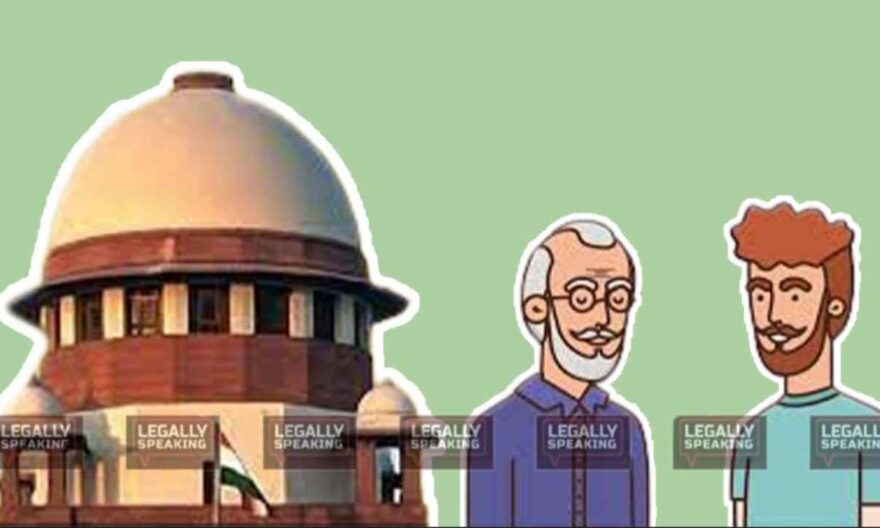
The Supreme Court has acquitted a father-son duo in a 27-year-old murder case. The duo had previously been convicted by the Sessions Court and High Court and sentenced to life imprisonment. However, the Supreme Court granted them acquittal based on the benefit of doubt and the prosecution’s failure to prove their guilt beyond a reasonable doubt.
In the case of Mohd. Muslim v State of Uttar Pradesh (Now Uttarakhand), a Bench comprising Justice V. Ramasubramanian and Justice Pankaj Mithal held “Thus, in the absence of any credible eye witness to the incident and the fact that the presence of the accused appellants at the place of incident is also not well established, we are constrained to accord benefit of doubt to both the accused appellants”.
In a land dispute between Mr. Altaf Hussain and the Appellants, Mohd. Muslim and Shamshad, a tragic incident occurred in 1995. According to the prosecution’s version, Mr. Altaf Hussain was riding a bicycle with his son and nephew when the Appellants allegedly attacked him with a “tabal” and an “axe,” resulting in his death. Two individuals who heard the commotion attempted to apprehend the Appellants, but they managed to escape into the nearby jungle, leaving behind their blanket and cycle at the scene.
On August 4, 1995, a delayed First Information Report (FIR) was registered, and it was later submitted to the Court. Although the Investigating Officer purportedly recovered the Appellants’ cycle and blanket from the crime scene, these pieces of evidence were never presented in court.
Throughout the trial, the Appellants maintained their innocence, denying any involvement in the crime. They claimed that no such incident had occurred and that they were being falsely implicated due to being newcomers to the village.
On April 25, 1998, the Sessions Court found the Appellants guilty under Section 302 of the Indian Penal Code, 1860 (IPC) for the murder of Altaf Hussain. They were sentenced to life imprisonment and ordered to pay a fine of Rs. 20,000/- each. In default of payment, they were further sentenced to six months of rigorous imprisonment.
On September 10, 2010, the High Court upheld the conviction and sentence. Subsequently, in 2011, the Appellants filed an appeal before the Supreme Court challenging their conviction. The appeal against Appellant No. 2 abated on August 16, 2021.
The Supreme Court bench analyzed the behavior of the deceased’s son and nephew, considering it to be unnatural. They did not intervene when their father was allegedly being assaulted by the Appellants, while two other individuals came to the deceased’s rescue from a distance. Furthermore, the deceased was not immediately taken to the hospital, but an FIR was lodged promptly. The bench found that the conduct of these two individuals supports the defense’s claim that they may not have been present at the scene of the incident.
In light of the prosecution’s failure to convincingly establish the involvement of the accused in the assault and death of Altaf Hussain, the court granted the Appellants the benefit of doubt.
The bench provided the following reasons for according the benefit of doubt to the Appellants: “The totality of the facts and circumstances especially the unnatural behaviour and conduct of the son and nephew of the deceased Altaf Hussain, ante-timing of the FIR and that the ‘loi (blanket) and the cycle alleged to be that of the accused appellants left behind at the site of the incident were not produced before the Court, compels us to doubt the presence of the son and nephew of the deceased Altaf Hussain at the site. Thus, in the absence of any credible eye witness to the incident and the fact that the presence of the accused appellants at the place of incident is also not well established, we are constrained to accord benefit of doubt to both the accused appellants”.
The court further noted that even if minor discrepancies in the oral evidence were ignored, the delay in conducting the post-mortem, differences in the names of the weapons used (which were similar types of instruments for cutting crops), and other factors, the prosecution failed to prove beyond a reasonable doubt that the Appellants committed the offense.
Consequently, the Supreme Court set aside the conviction order issued by the Session Court and affirmed by the High Court. Accordingly, the Appellants have been acquitted based on the benefit of doubt.




